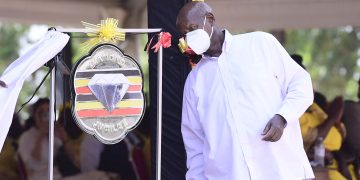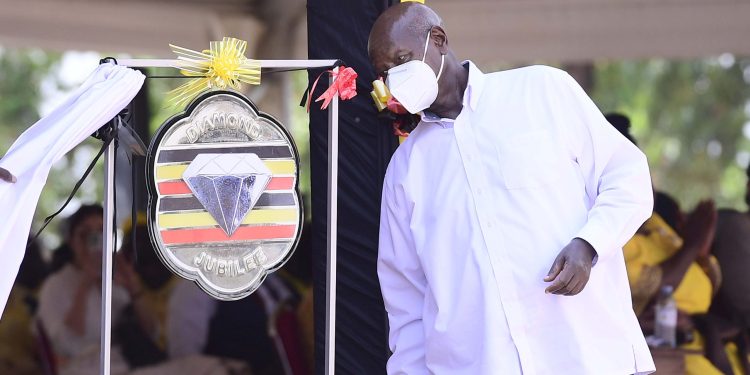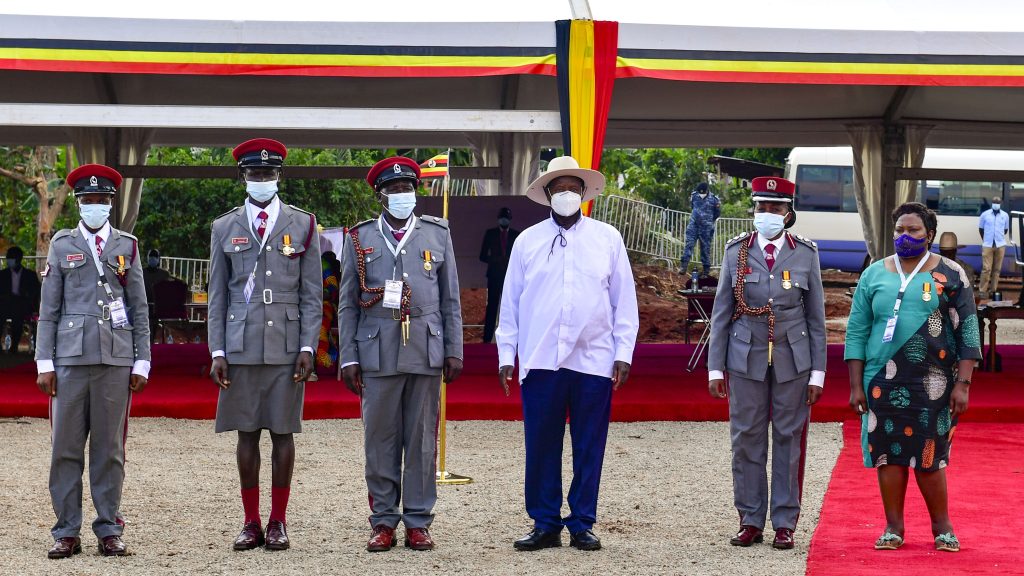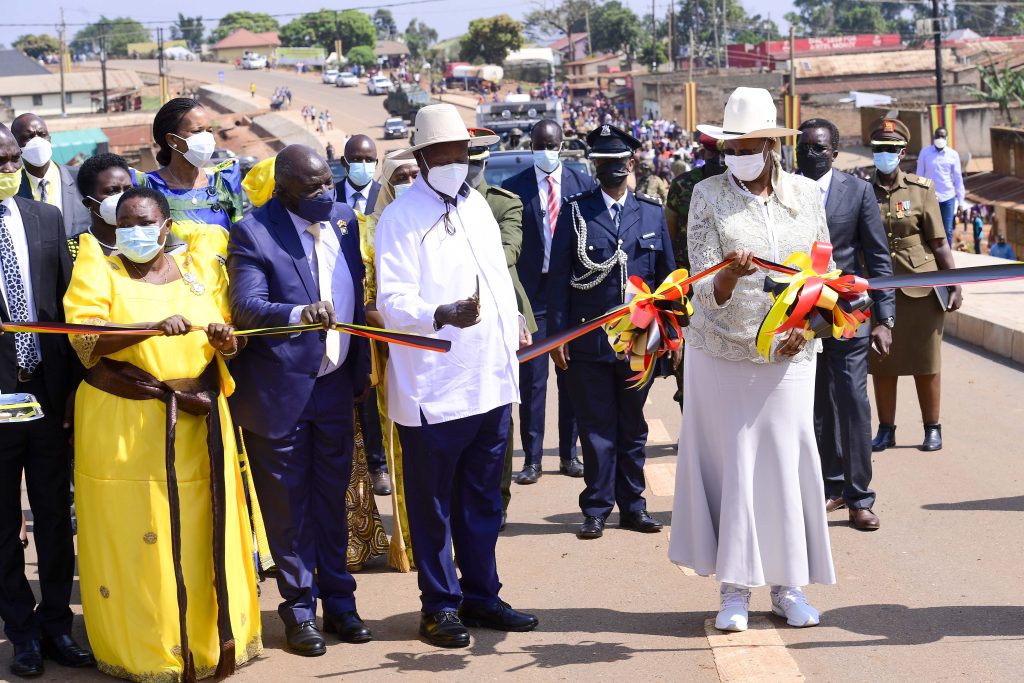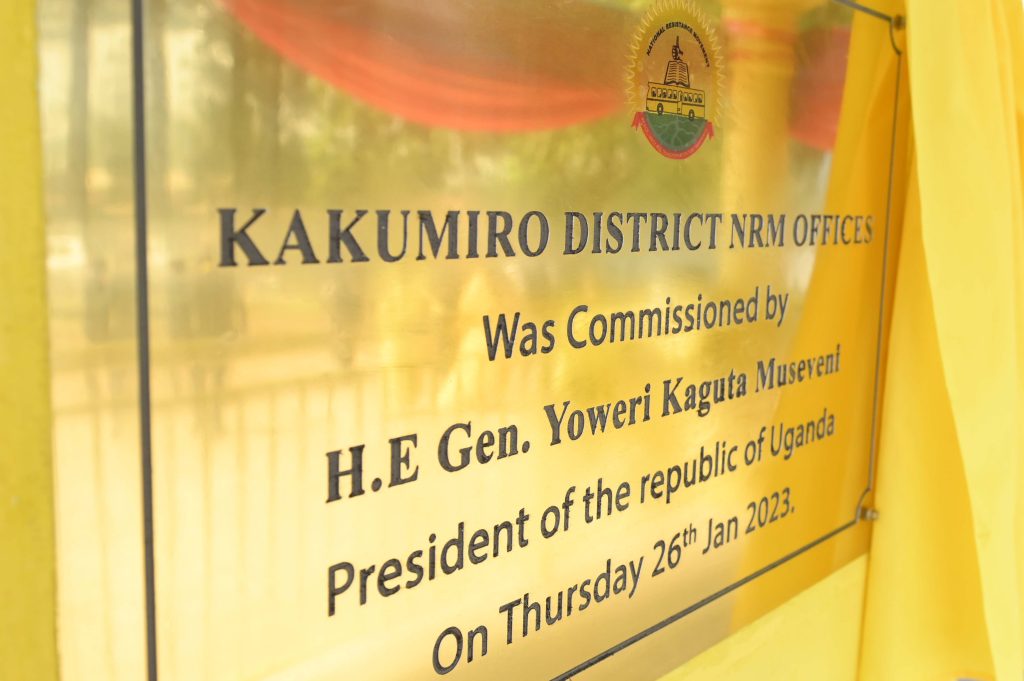President Yoweri Museveni has revealed that the NRM government has managed to successfully stay in power for the last 37 years due to the party’s four core principles that enabled Uganda to build strong institutions such as the Patriotic Political Parties, the Army, the Judiciary, among others, that have guaranteed peace, up-to-date.
President Museveni made the remarks Thursday during the celebrations to mark the 37th NRM Victory Anniversary held at Kakumiro District.
“Congratulations to all of you on this occasion of the 37th Anniversary of the NRM victory in 1986. That victory came about because of the NRM’s four principles that we had distilled out of the chaotic politics and governance that had bedevilled Uganda for almost 556 years, ever since the rule of the last Muchwezi King, Wamala – Ruhaanja, Njoojo ebuunga,” he said.
He noted that the bankrupt politics of identity chauvinism (ethnicity and religion), could not allow the young State of Uganda, following Independence, in 1962, or its democratic institutions, to survive.
“The crises between Mutesa and Obote in 1966 and between Obote and Amin in 1971, forced the student revolutionaries to take up arms and lead the masses in the effort to destroy the Colonial Army, the Uganda Army, as well as putting forward the four principles of the NRM that, we had distilled out of watching the chaos between 1960 and 1986.”
The four principles include Patriotism, Pan-Africanism, Socioeconomic transformation and democracy.
“That is why we are celebrating now. Patriotism (loving Uganda) and Pan-Africanism (loving Africa) re-oriented the Ugandans from following the politics of identity (tribes, religion, gender, etc.), to following the politics of the legitimate needs (interests) of the People (peace, consumer goods, health, development, education, wealth creation, markets for our products, among others,” The President added.
Gen. Museveni also disclosed that due to such attributes, Uganda’s economy has also since grown from a miserable US$1.5 billion in 1986 to US$48 billion by end of June 2023 and the Gross Domestic Product (GDP) per capita will be USD 1,067.
“You remember that to enter the middle-income category, you need a GDP per capita of USD 1,039. This is now the second financial year; we have been in that category. You need 3 years, consecutively, to be recognized as a middle-income Country. However, in my view, all those are low targets, which Uganda will easily surpass. Why? You remember my admonitions about losing value through the export of raw materials,” he observed.
President Museveni further explained that the low middle-income economy they are now talking about, is still, actually, mainly a raw-materials-producing economy, where for a kilogram of coffee, Uganda gets USD 2 for bean coffee while the wiser foreigners who roast the coffee, grind it and pack it for sale in Super-Markets, get USD 50 for the same kilogram.
“I have, finally, woken up some Ugandans from this sleep of ignorance. We are going to add value to more and more of our coffee and the other raw materials – cotton, maize, forest products, minerals, etc,” he said.
The Head of State revealed that this broad-spectrum value addition movement will jumpstart the country’s economy in a fairly short time to a half-trillion economy (USD 500 billion).
“We now have the electricity and we are adding more, we have the varied and massive raw materials and, increasingly, we have the entrepreneurs – local and foreign and we have the African market that we have put in place with our Pan-Africanist Comrades,” the President asserted, adding that,” Therefore, on this occasion, I want to emphasize 5 points. These are: be clear about development (entunguuka, enkulankulaine, dongolobo, apolu, etc.) and wealth (obugaiga, obuguuda, lonyo, etc.); be clear that Socio-economic transformation involves the whole society to move on two axises – money-based wealth creation with ekibaro and mass-education; stamping out corruption from all Government agencies in the Central and the Local Governments; stamping out sectarianism; and protecting our environment.”
